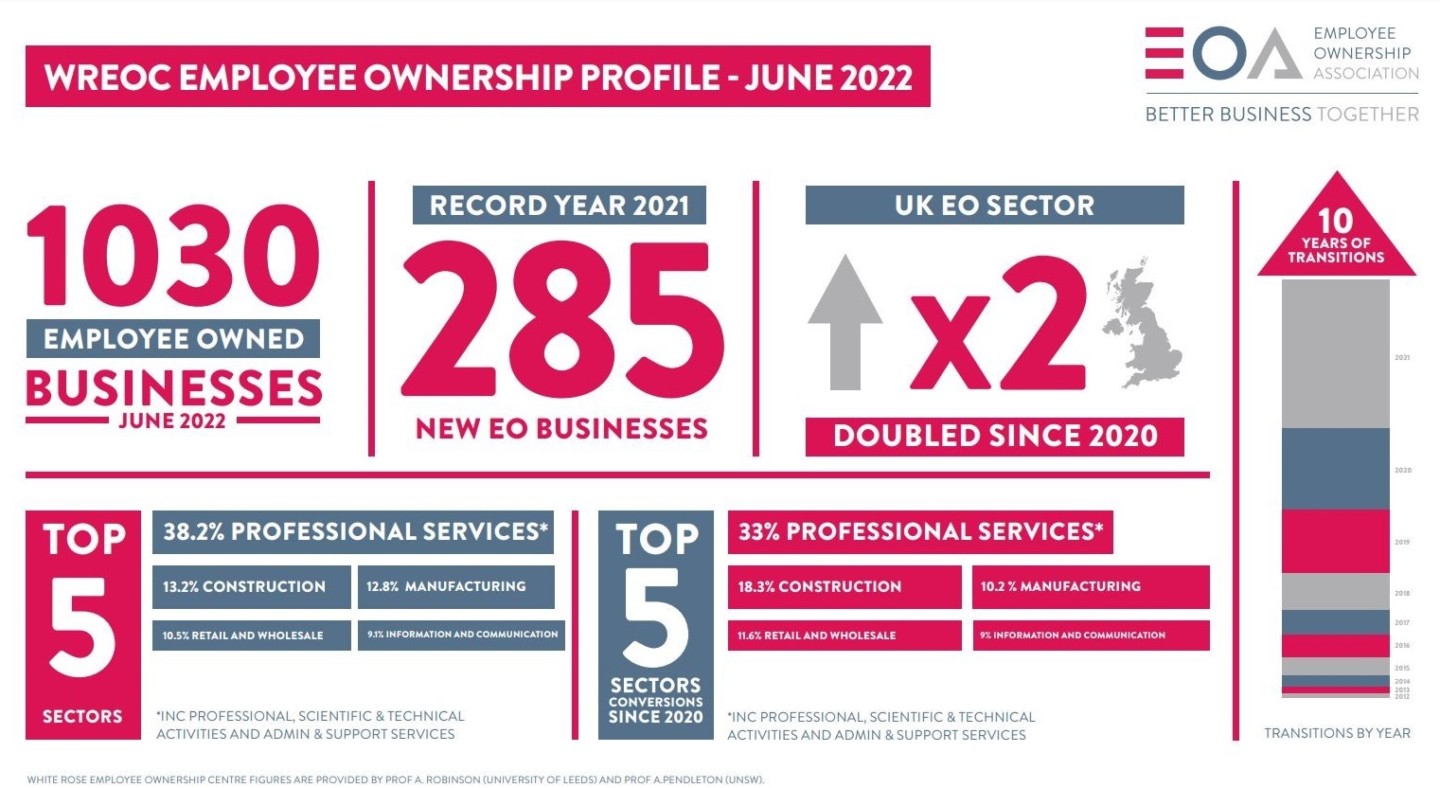This is an excerpt from an article featured on the EOA (UK) website. To read the full article please follow this link: What The Evidence Tells Us – Employee Ownership performing well on ESG objectives
What The Evidence Tells Us
The employee ownership sector has more than doubled in the past three years in the UK, smashing the 1,000 milestone for the first time.
The success of the employee ownership trust EOT has helped to change the shape and size of the sector. The accelerated growth is thought to linked to an increase in awareness for both businesses and advisors, the pandemic forcing owners to think about their own mortality and making sure they have a succession plan, and businesses wishing to be more sustainable with better impacts for people and the environment.
The latest statistics, provided by Employee Ownership Association (EOA) research partners Professors Andrew Robinson (University of Leeds) and Andrew Pendleton (UNSW) of the White Rose Centre for Employee Ownership (see the snapshot below), are accompanied by a snippet of their recent survey results that show the sector is delivering better business through giving employees a meaningful say:
- Being socially responsible – 71% of EOBs have a statement of purpose, which includes making a positive contribution to society and the environment, while 96% say that looking after the workforce is a key measure of business success
- Governance – 97% of EOBs have at least one form of employee governance, 74% have at least two
- Involved and informed – 90% of EOBs report that employees have some or a lot of say in decisions on working conditions, 85% have some or a lot of say in new working methods. 75% of businesses share financial information at least several times a year and a further 21% share it at least annually.
Meanwhile, the top end of the employee ownership sector continues to out-perform the rest of UK business in terms of productivity at between two and three times the national average.

